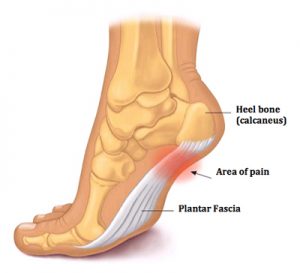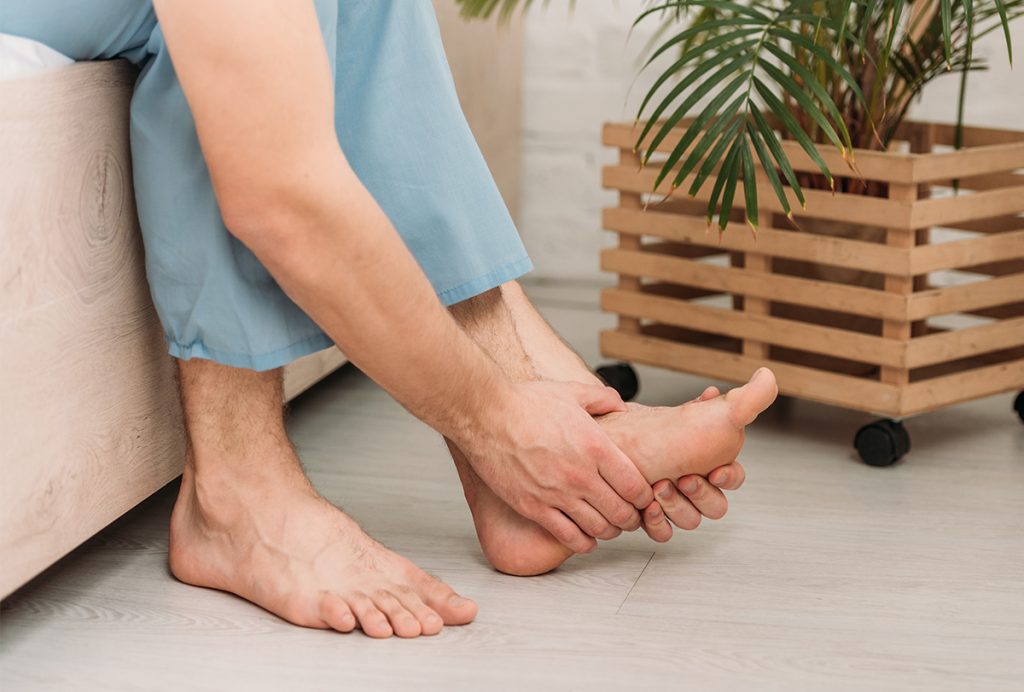We’ve all experienced tired or sore feet before – there’s no doubt after a long day on your feet, they’ll need a little TLC. But what if your pain is more sharp or severe? If the heel or arch of your foot feels painful or tight, you may be experiencing Plantar Fasciitis.
What is it?
Plantar fasciitis is a common cause of foot pain that involves inflammation of the thick tissue that runs along the bottom of the foot that connects your heel to your toes (the plantar fascia). This thick, weblike ligament acts as a shock absorber and supports the arch of the foot, helping you walk. Plantar Fasciitis typically arises from an initial injury or repetitive stress over time, and as a tissue injury, the PRICE procedure is recommended (See below: Treatment). Plantar Fasciitis is more common in runners, people who are overweight, and those who wear shoes with inadequate support.

Causes
There are many causes of plantar fasciitis, from footwear to frequent running, but the main causes of plantar fasciitis are usually identified as:
- Poor foot postures or high arches
- Incorrect footwear
- Tight calf or Achilles
- Overuse injuries (i.e. excessive training)
Signs & Symptoms
Pain from Plantar Fasciitis is often described as a sharp pain or burning sensation in the heel and arch of the foot. It generally develops gradually over time. You may notice that the pain is worse when you first rise in the morning or following exercise and prolonged periods of standing. You may be able to feel when massaging the area the tightness of the plantar fascia along the bottom of your foot.
Treatment
Initially, the PRICE Injury Treatment Procedure should be followed. This involves 5 actions:
- Protect
- Rest
- Ice
- Compress
- Elevate
Following this, treatment and a progressive exercise program overseen by a physiotherapist should be conducted. This will involve appropriate stretching and exercises for the foot and/or calves. Pain management may involve some gentle massaging and anti-inflammatories.
Prognosis
Recovery from Plantar Fasciitis can be lengthy if left untreated. Orthotic inserts for shoes, as well as exercises and stretches, can help with recovery. Typical recovery spans 6 to 8 weeks with consistent rehabilitation and avoidance of aggravating activities.
If you need help managing pain in your heel or feet, get in touch with one of our friendly physiotherapists today to get your recovery started.
If you need help with pain or immobility to get you moving again, or need a tailored exercise program, book in for your treatment now with one of our exercise, physio, or pain specialists via 1300 012 273 or head to our website and book a session at your nearest clinic.

